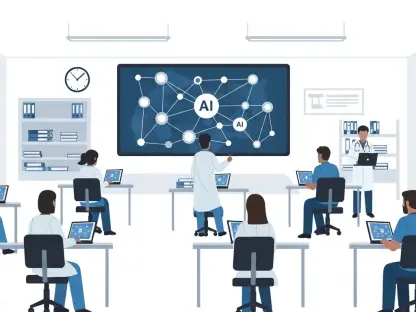The world is experiencing a critical shortage of nurses, a problem that is only getting worse. According to projections, there will be a deficit of 4.5 million nurses by 2030, intensifying concerns about future healthcare delivery. Experts are increasingly looking at artificial intelligence (AI) as a potential solution to this problem. The adoption of AI in healthcare could transform nursing workflows, relieve pressure on healthcare workers, and improve patient outcomes. This roundup explores how different aspects of AI can address issues plaguing the nursing profession.
Understanding the Global Nursing Shortage
The global nursing shortage is a multifaceted issue that stems from various factors. Among the most cited are burnout, safety concerns, and insufficient compensation. Industry observers note the urgency in tackling this issue as the gap between demand and supply widens. Nurses are spending considerable time on non-clinical tasks, detracting from direct patient care, which is a major factor in job satisfaction. For many healthcare professionals, AI offers tools that could potentially revolutionize their working environment by providing them with more time for patient interaction.
AI’s Ability to Transform Nursing Workflows
Improving Clinical Decision-Making
AI is seen as a valuable tool for enhancing clinical decision-making. By processing complex datasets from numerous sources, AI can offer precise recommendations, improving diagnostic accuracy and patient treatment plans. Case studies demonstrate that these advanced systems reduce the risk of human error while facilitating nurses in developing more informed care plans. However, there is concern over data overflow, which remains a hurdle for seamless integration into clinical settings.
Predictive Analytics in Patient Care
Predictive analytics is another avenue where AI exhibits tremendous potential. By analyzing vast amounts of patient data, AI can forecast potential health issues, thereby permitting early interventions. This capability to predict patient needs before conditions worsen helps prevent adverse incidents, reducing emergency interventions and improving care outcomes. However, the debate continues about striking the right balance between machine recommendations and human judgment.
Automating Administrative Tasks
Administrative duties often consume a significant portion of a nurse’s day, reducing time available for direct patient care. AI’s automation abilities offer a promising solution to this problem. In practice, AI tools have streamlined processes like documentation and scheduling, freeing nurses from extensive administrative tasks. Concerns about AI replacing human roles are prevalent, yet nuanced perspectives suggest that automation complements nursing work rather than substitutes it.
Enhancing Communication with Virtual Assistants
AI is also revolutionizing healthcare communication through virtual assistants. These tools leverage natural language processing to manage routine inquiries, thus reducing the communication burden on nurses. Comparisons across healthcare systems reveal varied levels of success, but the potential for transforming patient-nurse interactions remains significant. Discussions concentrate on the future role of AI in maintaining the delicate balance between technology and personal care.
Strategies for Effective AI Utilization
For hospitals and healthcare providers, strategizing the integration of AI solutions is pivotal. Experts suggest deploying best practices that involve pilot programs, workforce training, and a gradual approach to full-scale implementation. By establishing clear goals and fostering nurse engagement, healthcare facilities can effectively leverage AI’s capabilities. Practical steps, such as workshops and continuous education, are recommended to ensure that both nurses and administrators harness AI’s benefits optimally.
The Future of AI in Nursing
Looking ahead, continued exploration and investment in AI are crucial for enhancing nursing roles and improving patient care standards. Long-term implications suggest a redefined healthcare landscape where technology partners with human expertise to deliver superior care. By embracing AI, the nursing community stands to gain significantly, potentially offering solutions to alleviate workforce challenges and transform patient healthcare globally.
The global nursing crisis challenges traditional healthcare models, yet the promise of AI demonstrates a potential way forward. By shifting certain tasks from human to machine, AI provides new efficiencies and capabilities to the healthcare system. Continual development and thoughtful application of AI in nursing will likely address not just current problems but set the stage for future advancements in healthcare quality and accessibility.









